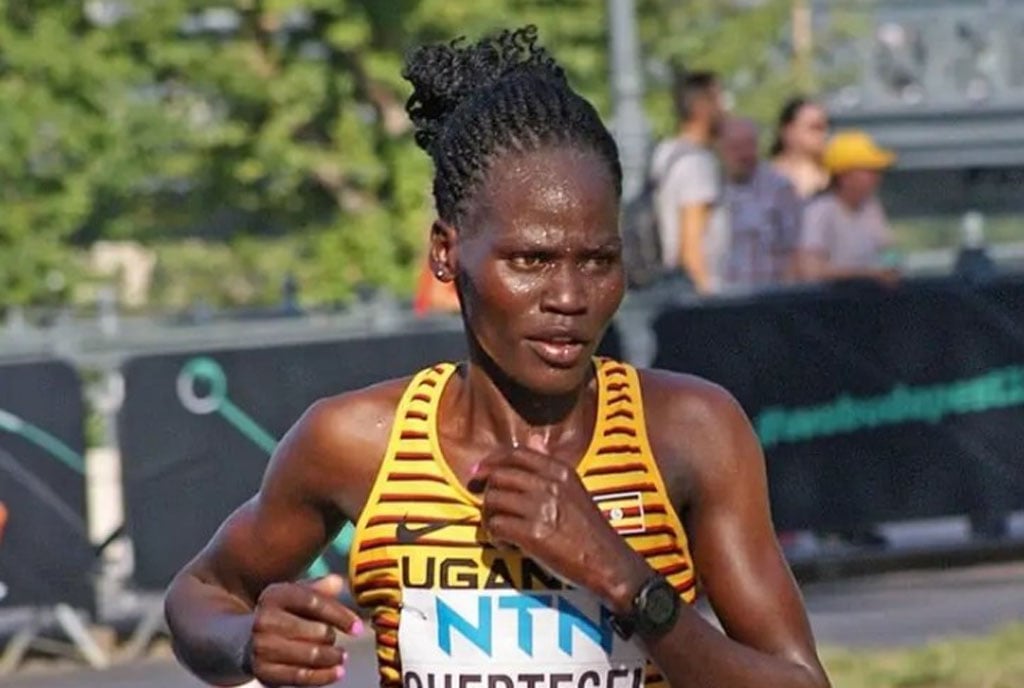Prime
Safal kiswahili prize for African literature calls for submissions

Fatuma Salim (left) receives a dummy cheque from Dr Caroline Asiimwe, the executive secretary of the East African Kiswahili Commission, after her poetry collection Changa La Macho won a top prize at the 2023 Safal-Cornell Kiswahili Prize for African Literature competition in Kenya last month. PHOTO/COURTESY/ Silas Wafula /Safal MRM
What you need to know:
Founded in 2014, the prize recognises writing in African languages and encourages translation from, between, and into African languages. This year, the overall prize will be awarded to unpublished manuscripts in categories of fiction, poetry, memoir and graphic novels. The total proposed awards of Shs55.9m or $15,000. The top fiction/non-fiction prize will win $5,000, top Poetry Prize will get $5,000 while the two runners-up prizes will be awarded $2,500 each in any of the genres.
The Safal Kiswahili Prize for African Literature is calling for submissions of manuscripts for its 9th edition. The submissions that opened on July 29 will close on November 30.
Writers from East Africa and anywhere worldwide, who write in Kiswahili are encouraged to submit their manuscripts and participate in this year’s awards. They, especially encourage women Kiswahili writers to submit their manuscripts.
The prize, formerly known as The Safal-Cornell Kiswahili Prize for Africa Literature rebranded its name to reflect the parent organisation and main sponsor, the Safal Group Limited, with its member companies Mabati Rolling Mills (MRM) in Kenya and ALAF (ALAF) in Tanzania.
The prize, founded in 2014 by Dr Lizzy Attree (Short Story Day Africa) and Dr Mukoma wa Ngugi (Cornell University), recognises writing in African languages and encourages translation from, between, and into African languages.
Over the last eight years, the Safal Kiswahili Prize for African Literature has supported Kiswahili authors whose manuscripts have since been published by Mkuki na Nyota.
Over 24 editions are available to buy at https://mkukinanyota.com/shop/. In 2023, for the 8th edition, 259 manuscripts were submitted.
Speaking to the press, Abdilatif Abdalla, the board chairperson for the Kiswahili Prize, said: “It is encouraging to see that year after year, the number of participants from both the continent and the diaspora keeps growing.
“Last year, the total number of manuscripts submitted to the awards was 259. This is evidence of the spread of Kiswahili language worldwide and as a language of unity for the African continent. It is our hope that this year, even more writers working in Kiswahili will submit,” he said.
ALAF’s head of external affairs and communications, Hawa Bayumi, says Safal Group has over the years focused on four main CSI pillars: Health, Education, Environment and Shelter. The Safal Kiswahili Prize for African Literature falls under the Education pillar.
“We are proud to continue supporting the Kiswahili Prize for African Literature, which promotes Kiswahili literature and African languages. Kiswahili is one of the fastest-growing languages in the world and is used in several countries across Africa. The SAFAL Group recognises the importance of language as a critical tool for cultural, social, and economic development. We will continue to promote the growth of Kiswahili literature through these awards,” Bayumi added.
This year, the overall prize will be awarded to unpublished manuscripts in categories of fiction, poetry, memoir and graphic novels.
As of 2023, previously published books will not be considered. The total proposed awards of Shs55.9m or $15,000 will be divided as follows: The top Fiction/Non-Fiction Prize will be awarded $5,000; Top Poetry Prize will be awarded a similar amount of $5,000 while the two runners-up prizes will be awarded $2,500 each in any of the genres written.
The winning entries will be considered for publication in Kiswahili by Mkuki na Nyota Publishers (Tanzania), who will then work with other regional publishers and book distributors to ensure maximum reach for the winning books.
The winning poetry will be translated to English and published by the African Poetry Book Fund. An award ceremony will be held in July 2025 with all the shortlisted writers in attendance.
Unpublished manuscripts (fiction, poetry, plays, memoir and graphic novels) can be submitted to: [email protected]. Prose submissions should be limited to between 40,000 – 60,000 words.
The Tanzanian authors Philipo Oyaro and Fatuma Salim won the top prizes at the 2023 Safal-Cornell Kiswahili Prize for African Literature competition.
Oyaro won the first prize in the Fiction category for his novel Dunia Duara (The Earth is Round), while Salim’s poetry collection Changa La Macho (Sand in the Eyes) took the top prize in the poetry category.



